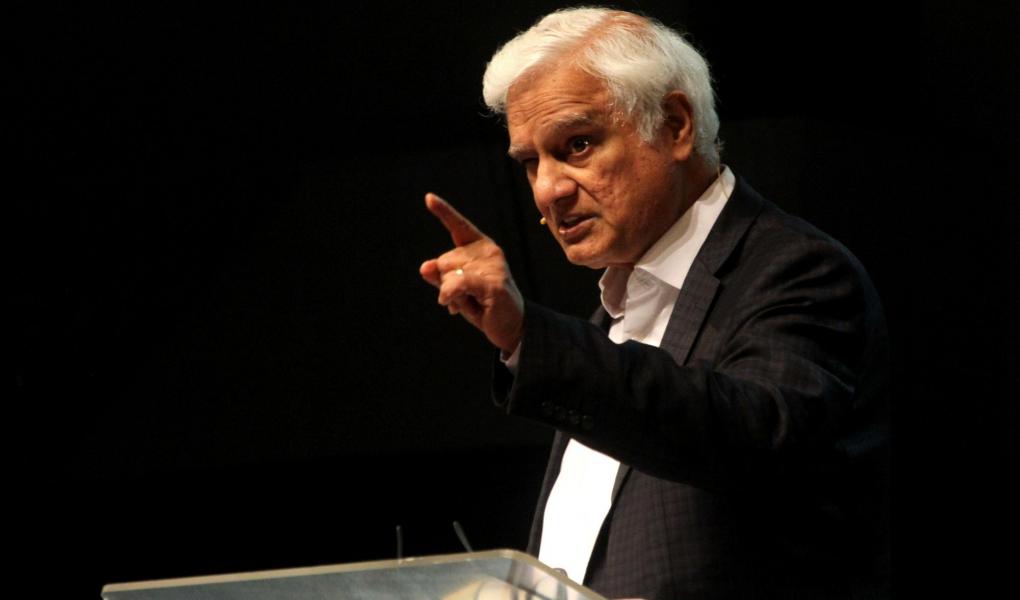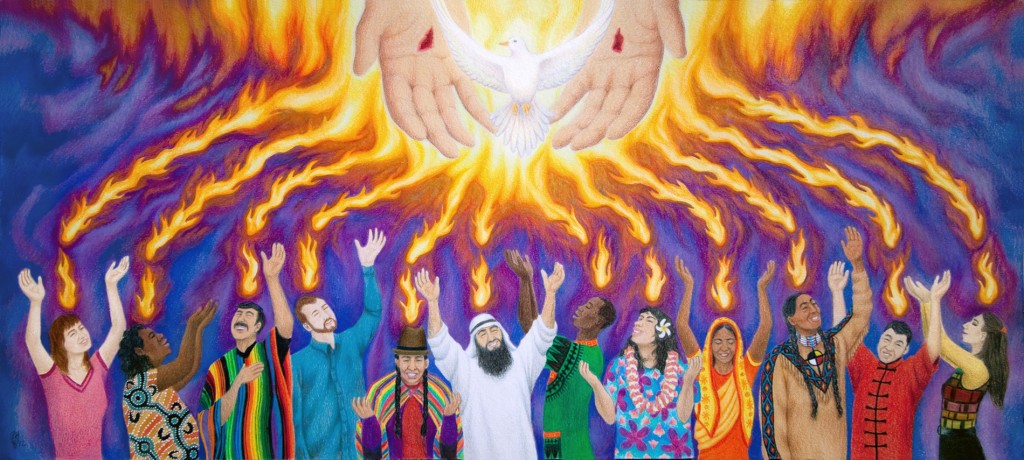الترجمة العربية لهذه المدونة تلي النسخة الإنكليزي
The Evangelical world here and elsewhere continues to reel from the shock of the sexual scandals surrounding the famous Christian apologist, Ravi Zacharias. I stated my thoughts on this matter last week, as have many others. It seems to me we are slowly moving away from trying to come to terms with the news, to a new set of questions. Most importantly, I hear people asking “can we still use his work?”

Before I discuss that, allow me to emphatically state that this post is not about Ravi’s relationship with God, whether or not he repented before he died, and a statement in any way about his fate after his death. It is not my place to play God. I am attempting to walk through my own thoughts in a public place on whether or not to continue to use Ravi’s work.
Friends advocating for the continued use of his sermons and ideas have given two reasons. Allow me to speak about each of them.
We can continue to use the work of Ravi because we are all sinners
I agree and disagree with this statement. Yes, in a general spiritual sense we are all unworthy of the grace of God. We all fall short, no matter how much we mature in faith, from the perfect image of God’s holiness. But our scriptures and church traditions stress, time and time again, the importance of Christian maturity or perfection.
All followers of Jesus stand equally before the table of Christ. But not all followers of Jesus are at the same level of spiritual and personal maturity.
In fact, I find this argument very frustrating. The pastor of our local church is a wonderful man. He is faithful to his wife and kids. He serves with humility and kindness. Is he in need of God’s grace? Every single moment of his life. Is he using his power to abuse women for sexual pleasure? Not even close.
My PhD supervisor is a wonderful teacher of the New Testament. He has lived a life of humility, quietly teaching thousands of students all over the world without much pomp and festivities. Is he in need of God’s grace? Every single moment of his life. Is he using his power to abuse women for sexual pleasure? Not even close.
I could go on for some time. But you get the idea.
Yes, we are all sinful in the general sense of the word – in that we are all in need of God’s mercy and grace. But we are not all sexual predators.
I can think of countless Christian leaders whose character is beautiful and Christ-like. And lumping them all together in one group with Christian leaders who used their positions of power to abuse women is neither logical nor fair.
We can continue to use the work of Ravi because we consider the writings of David and Solomon as scriptures
I think this is a very good argument for continuing to use Ravi’s work. However, I don’t think it is accurate to compare the figures of David/Solomon to Ravi.
In the narrative of Israel, David and Solomon were kings. In that context and culture, kings had a harem. It was acceptable in that context. What was David’s sin? He once took a wife of another man as his own. He repented of that sin. What was Solomon’s sin? He allowed his foreign wives to lead him to the worship of foreign gods. We are not aware that he repented. In all cases, the kingdom of Israel was split after his reign was over.
David was according to God’s heart because he repented. And as the many psalms attributed to him show, he was big on seeking forgiveness and mercy from God.
Three wisdom books are attributed to Solomon. Most scholars agree that Solomon did not write Ecclesiastes, Proverbs, or Song of Songs. But even if he did write these books, they are wisdom books. Ecclesiastes is a philosophical book outlining a pessimistic view of life. Proverbs is a collection of popular sayings dealing with daily issues of life. Incidentally, it stresses the dangers of sexual sin. Song of Songs is a collection of love poetry traditionally used by the people as a metaphor for their relationship with God. But they are not texts that teach the people on how to operate religiously – they do not contain commandments on worship, purity laws, and such. That task is left to the first five books of the Old Testament.
Ravi was not a writer of wisdom sayings, nor a writer of songs. He was a Christian teacher par excellence. He sought to lead people to faith and teach them theology. He was a Christian apologist whose main goal in life was to convince people that the way of Christ is the only true way.
If I were to compare Ravi to any biblical writer, Paul immediately comes to mind. Much like Paul, he went around the world trying to convince people to follow Christ. Paul stresses time and time again that his character, the way he behaved with the people he served, is a crucial part of the gospel message. The way Paul lives among the people he serves is part of the gospel he shares with them!
See for instance, to give one example out of many, his words in the second chapter of the first letter to the Thessalonians. He reminds the church that “we were gentle among you like a nursing mother taking care of her own children.” He then goes on to call his behavior among them as “holy and righteous and blameless.” In the previous chapter he states that the church “became imitators of us.” Those are big claims, yet they are claims which Paul expects in Christian leaders.
Christian leaders should be able to claim that they are attempting to live a life of blameless service (love and care) to the people under their watch. That is the bar set by the New Testament writers and church tradition. Using their power to coerce women into sexual relations is not blameless service in any way or form.
Personally, I will not use Ravi’s words or lectures anymore. Others might still find them useful. It is a personal choice. His words, for me, have been tainted by his deeds. I don’t think we can divorce Christian teaching from the Christian character producing it.
But by all means, feel free to use his work if you feel like it. Just don’t assume a high ground on us. I am not a hypocrite because I stopped using his work. Whatever your decision, it might be helpful to remember that we would not accept Ravi’s behavior in our personal lives. We would definitely not accept his behavior in the spiritual leaders and teachers in our local church.
Let us stand in prayer,
Lord,
Strengthen the shepherds,
The sheep are weary.
Amen’
هل نستطيع أن تستمر بإستخدام أعمال رافي زاكارياس؟
لم يتعافَ العالم الإنجيلي في منطقتنا وسائر العالم بعد من صدمة الفضائح الجنسية المحيطة بالمبشّر المسيحي المشهور، رافي زاكارياس. كنت سبق وعبّرت عن رأيي بالموضوع الأسبوع الماضي، كما فعل كثيرون غيري. ويبدو لي أننا نتخطّى ببطء محاولاتنا لفهم ما حدث، وننتقل لنطرح مجموعة جديدة من الأسئلة، وأهمّها عمّا إذا كان باستطاعتنا الإستمرار بإستخدام أعماله ومنتجاته الفكرية
قبل أن أناقش هذا الأمر، دعوني أوضّح بشكل لا يدعو للشكّ بأنني في هذه المدونة لا أتكلم عن علاقة رافي بالله ولا إذا كان قد تاب عن خطيئته ولا عن مصيره بعد الموت. لا أحاول أن أضطلع بدور الله. أنا أحاول ببساطة أن أسرد أفكاري على هذه المنصّة العامة حول استخدام أعمال رافي

الأصدقاء الذين يحاججون بأننا يمكننا الإستمرار باستخدام أعماله قدّموا حجَّتَيْن دعوني أعالجهما
نستطيع أن نستمر بإستخدام أعمال رافي لأننا جميعا خطاة
أوافق جزئيا على هذا التصريح. نعم، من منظار روحي عام جميعنا غير مستحقين لنعمة الله. كلنا نفشل للوصول إلى صورة الله المقدّسة كاملةً مهما نضِجنا بالإيمان. ولكن كتبنا المقدسة وتقليدنا الكنسيّ يؤكّد باستمرار على أهمية النمو في الكمال المسيحي
نقف كأتباع المسيح بشكل متساو أمام مائدة المسيح، ولكن لا يقف جميع أتباع المسيح على نفس المستوى الروحي والنضج الشخصي
لا بل أجد هذه الحجّة مزعجة جدا. راعي كنيستي المحلية رجل رائع، فهو أمين مع زوجته وأولاده ويخدم بتواضع وحنان. هل يحتاج لنعمة الله؟ بالتأكيد، في كل لحظة من حياته. هل يسيء استخدام سلطته للتعدّي على النساء من أجل المتعة الجنسية؟ ولا بأي شكل من الأشكال
أستاذي في دراسات الدكتوراه معلّم رائع في العهد الجديد، وعاش حياة التواضع مدرّسا آلاف التلاميذ حول العالم بدون شهرة أو مقدّمات. هل يحتاج لنعمة الله؟ بالتأكيد، وبكل لحظة من حياته. هل يسيء استخدام سلطته للتعدّي على النساء من أجل المتعة الجنسية؟ ولا بأي شكل من الأشكال
واللائحة تطول ولكن أعتقد أن الفكرة وصلت. نعم، جميعنا خطاة بالمعنى العام للكلمة – جميعنا بحاجة لنعمة الله ورحمته، غير أننا لسنا جميعا معتدين جنسيين
أستطيع أن أفكّر بعدد لا يحصى من القادة المسيحيين الذين يتحلّون بشخصية جميلة وشبيهة بالمسيح. وضع هؤلاء جميعهم في مجموعة واحدة مع القادة المسيحيين الذين استخدموا سلطتهم للإساءة للنساء لأمر غير منطقي وغير عادل
نستطيع أن نستمر بإستخدام أعمال رافي لأننا نعتبر أن كتابات داود وسليمان مقدّسة
أعتقد أن هذه حجّة قوية للإستمرار بإستخدام أعمال رافي. ولكن لا أعتقد أن المقارنة بين رافي وداود وسليمان دقيقة
في قصة إسرائيل، كان داود وابنه سليمان ملكين، وفي ذلك السياق وتلك الحضارة، كان يحق للملك الإحتفاظ بحريم من النساء. فماذا كانت إذا خطيئة داود؟ أخذ امرأة رجل آخر له. ولكنه تاب عن خطيته. وماذا كانت خطيئة سليمان؟ سمح لزوجاته الأجنبيات أن يقدنه لعبادة آلهة غريبة. ولا يوجد تقرير عن توبته. في جميع الأحوال، انقسمت المملكة بعد مماته
داود كان بحسب قلب الله لأنه تاب، وكما نرى في العديد من المزامير التي تحمل إسمه، اعتقد أن طلب المغفرة والرحمة من الله أمر مفصلي
تم نسب ثلاث كتب من كتب الحكمة لسليمان، ولكن يتّفق معظم العلماء أن سليمان لم يكتب الجامعة وأمثال ونشيد الأنشاد. ولو كان هو الكاتب، فهي كتب حكمة. كتاب الجامعة يقدّم فلسفة متشائمة حول الحياة. أمثال مجموعة من الأمثال الشعبية حول مسائل الحياة اليومية، ومن الملفت هنا أن من أبرز المواضيع المطروحة موضوع خطورة الخطية الجنسية. ونشيد الأنشاد مجموعة من قصائد الحب وقد استُخدمت تقليديا كإستعارة لعلاقة الشعب مع الله. ولكنها ليست كتابات هدفهها تنظيم الحياة الدينية للشعب – لا تحتوي على وصايا حول العبادة وقوانين الطهارة وما شابه. هذه مهمة الكتب الخمسة الأولى في العهد القديم
رافي ليس بكاتب للترانيم أو الحكمة، بل هو معلّم مسيحي بإمتياز. سعى لقيادة الناس للإيمان وتعليمهم اللاهوت. كان مبشّرًا مسيحيًّا يدافع عن الإيمان وهدفه الأوحد إقناع الناس بأن طريق المسيح هو الطريق الوحيد الصحيح
إذا كان ولا بد لي أن أقارن رافي بأحد كتّاب الكتب المقدّسة، فبولس يأتي مباشرة لذهني. فهو سافر مثل بولس حول العالم لإقناع الناس بإتّباع المسيح، وبولس شدّد بإستمرار على سلوكه وشخصيته، فالنسبة إليه إن طريقة سلوكه مع الناس الذين يخدمهم هي جزء أساسي من رسالة الإنجيل. أي أن طريقة عيش بولس بين الناس الذين خدمهم تعتبر جزءًا من الأخبار السارة التي شاركها معهم
أنظر مثلا، وهذا مثال واحد من بين العديد من المقاطع المشابهة، كلماته في الفصل الثاني من رسالة 1 تسالونيكي، حيث يذكّر الكنيسة بأنه “كنّا مترفّقين في وسطكم كما تربّي المرضعة أولادها. ولاحقا يصف سلوكه بينهم على أنه كان “بطهارة وببرّ ولا لوم” بينهم. هذه ادّعاءات كبيرة، ولكنها ادّعاءات يتوقّعها بولس من القادة المسيحيين
على القادة المسيحيين أن يقدروا أن يعلنوا أنهم يحاولون السلوك بطريق الخدمة التي بلا لوم (بمحبة وحنان) مع الناس الذين هم تحت رعايتهم. هذا هو الميزان الذي يضعه أمامنا العهد الجديد وتقليد الكنيسة. استخدام سلطتهم لإجبار النساء على القيام بعلاقات جنسية معهم ليس خدمة بلا لوم لا من قريب ولا من بعيد
شخصيا، لن أستخدم كلمات وعظات رافي بعد الأن. قد يجدها غيري مفيدة. ولكن هذا خيار شخصي. كلماته، بالنسبة لي، قد شوّهتها أعماله. لا أعتقد أننا نستطيع أن نفصل التعليم المسيحي عن الشخصية المسيحية التي تعلّمه
ولكن يبقى لكل شخص ملئ الحرية إذا أراد إستخدام منتجات رافي زاكارياس الفكريّة. ولكن أرجو ألا تعتقدوا أنكم أفضل مني أخلاقيا وأنني مرائي لأنني توقفت عن إستخدام أعماله. مهما كان خياركم، قد يكون من المفيد لنا أن نتذكّر أننا لا نقبل سلوك رافي في حياتنا الشخصية. وبالطبع لن نقبل سلوكه في القائد والمعلم الروحي في كنائسنا المحلية
دعونا نقف لنصلِّ
يا رب
قوّي الرعاة
فقد تعبت الخراف
آمين









